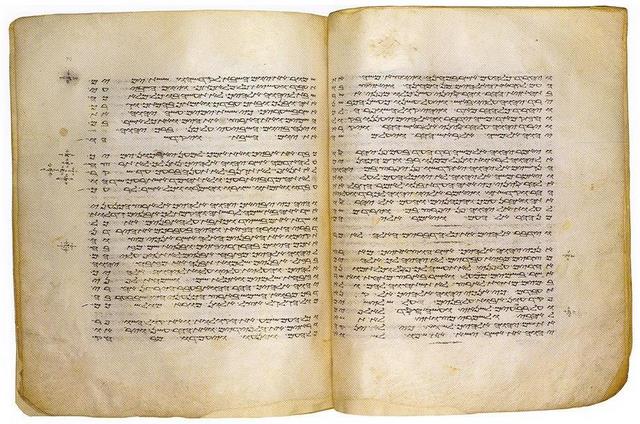Damascus, Syria
Exodus 20
This is one of the most significant manuscripts in the British Library’s collections, and reveals the Smaritan scribal tradition of copying manuscripts of the Pentateuch. It was written in Samaritan majuscule Hebrew characters by the scribe Abraham ben Jacob ben Tabya ben Sa’adah ben Abraham of the Pijma family, and is typical of the Damascene scribal tradition. The Decalogue (Ten Commandments in Exodus) is indicated by an alphanumeric marking in the margin at the left of the text.
The Samaritans (from the Hebrew shomronim, the ‘Observant Ones’) are a religious and ethnic sect, claiming to preserve the scribal tradition of copying manuscripts of the Pentateuch. Some features of their faith are identical to Judaism (belief in one God, and in the Torah as God’s word dictated to Moses) while others differ significantly (they do not accept Jewish laws, or the pronouncements of early rabbis in collections called the Mishnah and Talmud).
The precise date of the Samaritans’ split from mainstream Judaism is unknown, but it is likely to have been complete at the close of the fourth century BC. There are still a few hundred Samaritans living in modern-day Israel.
Of the three positive mentions of Samaritans in the Christian Gospels, the most famous is the parable of the Good Samaritan. A Jew has been attacked and robbed and left to die by the roadside. Alone out of the passers-by, it is a Samaritan who stops to help, despite the antipathy between their sects. This has seen the word take on its everyday modern meaning of ‘someone who does a selfless good deed’, especially to a stranger in distress.
British Library- Samaritan Pentateuch
See also-
